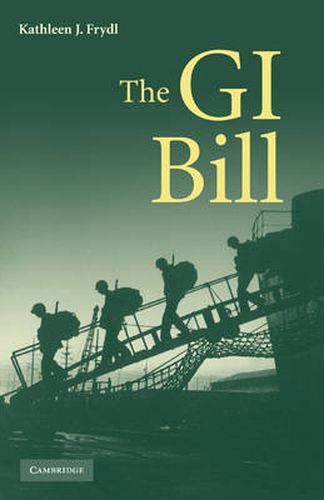Readings Newsletter
Become a Readings Member to make your shopping experience even easier.
Sign in or sign up for free!
You’re not far away from qualifying for FREE standard shipping within Australia
You’ve qualified for FREE standard shipping within Australia
The cart is loading…






Scholars have argued about U.S. state development - in particular its laggard social policy and weak institutional capacity - for generations. Neo-institutionalism has informed and enriched these debates, but, as yet, no scholar has reckoned with a very successful and sweeping social policy designed by the federal government: the Servicemen’s Readjustment Act of 1944, more popularly known as the GI Bill. Kathleen J. Frydl addresses the GI Bill in this study based on systematic and comprehensive use of the records of the Veterans Administration. Frydl’s research situates the Bill squarely in debates about institutional development, social policy and citizenship, and political legitimacy. It demonstrates the multiple ways in which the GI Bill advanced federal power and social policy, and, at the very same time, limited its extent and its effects.
$9.00 standard shipping within Australia
FREE standard shipping within Australia for orders over $100.00
Express & International shipping calculated at checkout
Scholars have argued about U.S. state development - in particular its laggard social policy and weak institutional capacity - for generations. Neo-institutionalism has informed and enriched these debates, but, as yet, no scholar has reckoned with a very successful and sweeping social policy designed by the federal government: the Servicemen’s Readjustment Act of 1944, more popularly known as the GI Bill. Kathleen J. Frydl addresses the GI Bill in this study based on systematic and comprehensive use of the records of the Veterans Administration. Frydl’s research situates the Bill squarely in debates about institutional development, social policy and citizenship, and political legitimacy. It demonstrates the multiple ways in which the GI Bill advanced federal power and social policy, and, at the very same time, limited its extent and its effects.